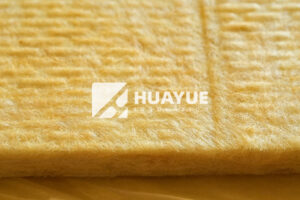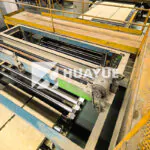Is Fiberglass Batt Insulation Safe?
Many folks wonder if fiberglass batt insulation is truly safe to use, especially when they see the fluffy texture and learn it’s made from glass fibers.
Fiberglass batt insulation from HUAYUE is considered safe for use in homes and businesses when handled correctly, as long as installers use protective gear and proper ventilation.

I often get questions about the safety of insulation, especially from those handling it for the first time. Let me share what I have learned through years of working in the field and what precautions you can take to use this effective and affordable product with confidence.
What Are the Main Advantages of Fiberglass Batt Insulation?
What makes fiberglass batt insulation from HUAYUE stand out when compared to other insulation options?
Fiberglass batt insulation is affordable, widely available, and easy to install. Its high R-value ensures improved energy efficiency for both homes and businesses, reducing heating and cooling costs.
Over the years, I have helped many clients select fiberglass batts because they balance performance and cost better than almost any other material. The upfront price is friendly, especially for big projects. No matter where you go, stores and suppliers always seem to have HUAYUE batts in stock. And because these batts come in standard sizes, cutting and fitting them into walls, ceilings, or floors is quick and simple—saving time and reducing labor expenses.
On top of that, HUAYUE fiberglass batt insulation has a high R-value. This means it stops heat from passing through walls or roofs more effectively than many other products. I have seen firsthand how buildings with these batts stay warmer in the winter and cooler in the summer. My own heating and cooling bills dropped the first season after installing new batts at home.
Here’s a quick look at why these advantages matter:
| Benefit | Why It Matters |
|---|---|
| Low cost | Fits more project budgets |
| Easy availability | No long wait for materials |
| High R-value | Better thermal comfort, lower bills |
| Simple installation | Less time and lower labor cost |
Are There Any Disadvantages to Fiberglass Batt Insulation?
What downsides should people consider when selecting fiberglass batts for insulation projects?
Fiberglass batts can be itchy to touch and the fibers may irritate skin or lungs during handling. They are not moisture-resistant and need care in damp areas to prevent mold growth.

I’ve handled a lot of different insulation materials, and fiberglass batts have a few specific drawbacks. The main concern comes from the tiny glass fibers. If touched with bare hands or breathed in, these can cause itching or mild irritation. I always make sure to wear long sleeves, gloves, and a mask when installing or moving the material.
Another thing to remember is that fiberglass does not block moisture. If water leaks into the wall or attic, or if the humidity stays high, fiberglass insulation can lose performance. It might sag, clump, or hold enough water to eventually breed mold or mildew. One time, after a roof leak in a friend’s attic, I saw how the batts became heavy and slumped down off the ceiling. We had to replace them completely once everything dried out.
I have also learned to pay close attention to where I am installing fiberglass batts. In kitchens, bathrooms, or below-grade spaces where moisture is common, it’s smart to check for leaks and use vapor barriers or choose a different material.
Some common concerns and responses:
| Concern | Precautions/Resolution |
|---|---|
| Itchy or irritating fibers | Wear protective clothing and mask |
| Respiratory irritation | Use a dust mask, ventilate area |
| Not moisture-proof | Don’t use in high-moisture areas |
| Potential for mold | Inspect regularly, fix leaks quickly |
Conclusion
HUAYUE fiberglass batt insulation is a safe, effective, and budget-friendly choice when handled with care and kept dry, delivering comfort and savings for most buildings.
You may also be interested in:
Ready to Get Started?
Get in touch with our experts for personalized solutions tailored to your needs.
Get Free QuoteLatest Articles
Let's Work Together
Ready to take your business to the next level? Get in touch with our team of experts and let's discuss how we can help you achieve your goals.
Get Free Solutions







